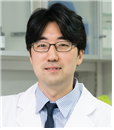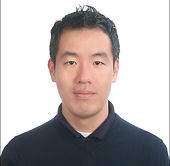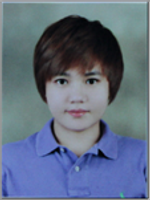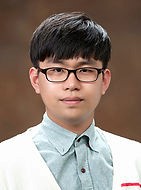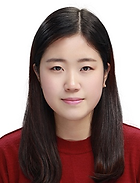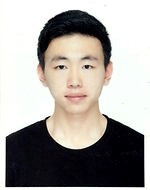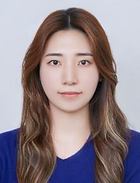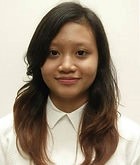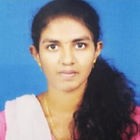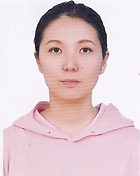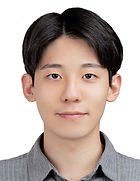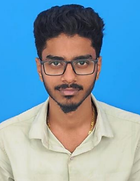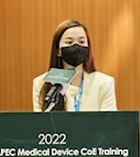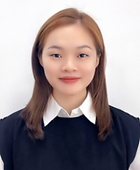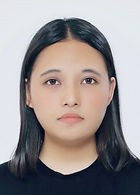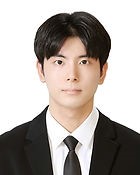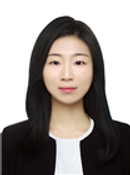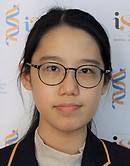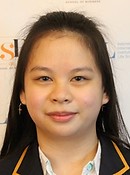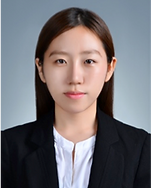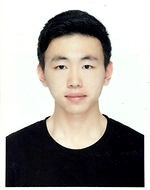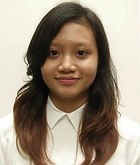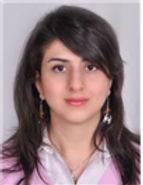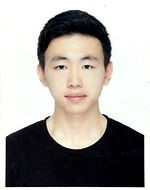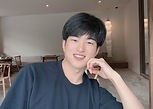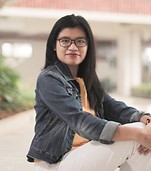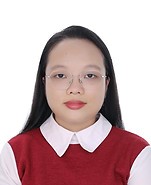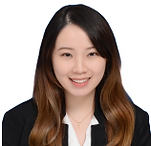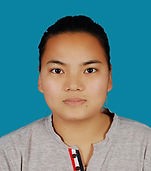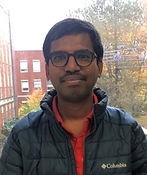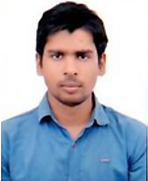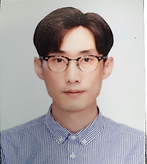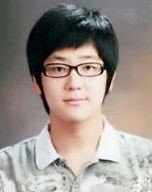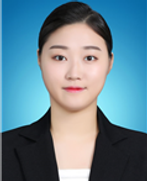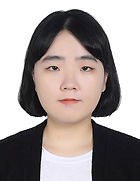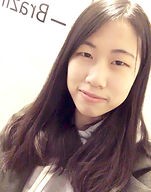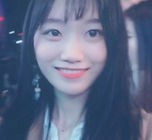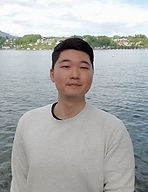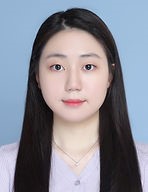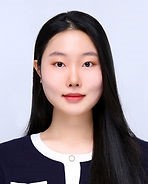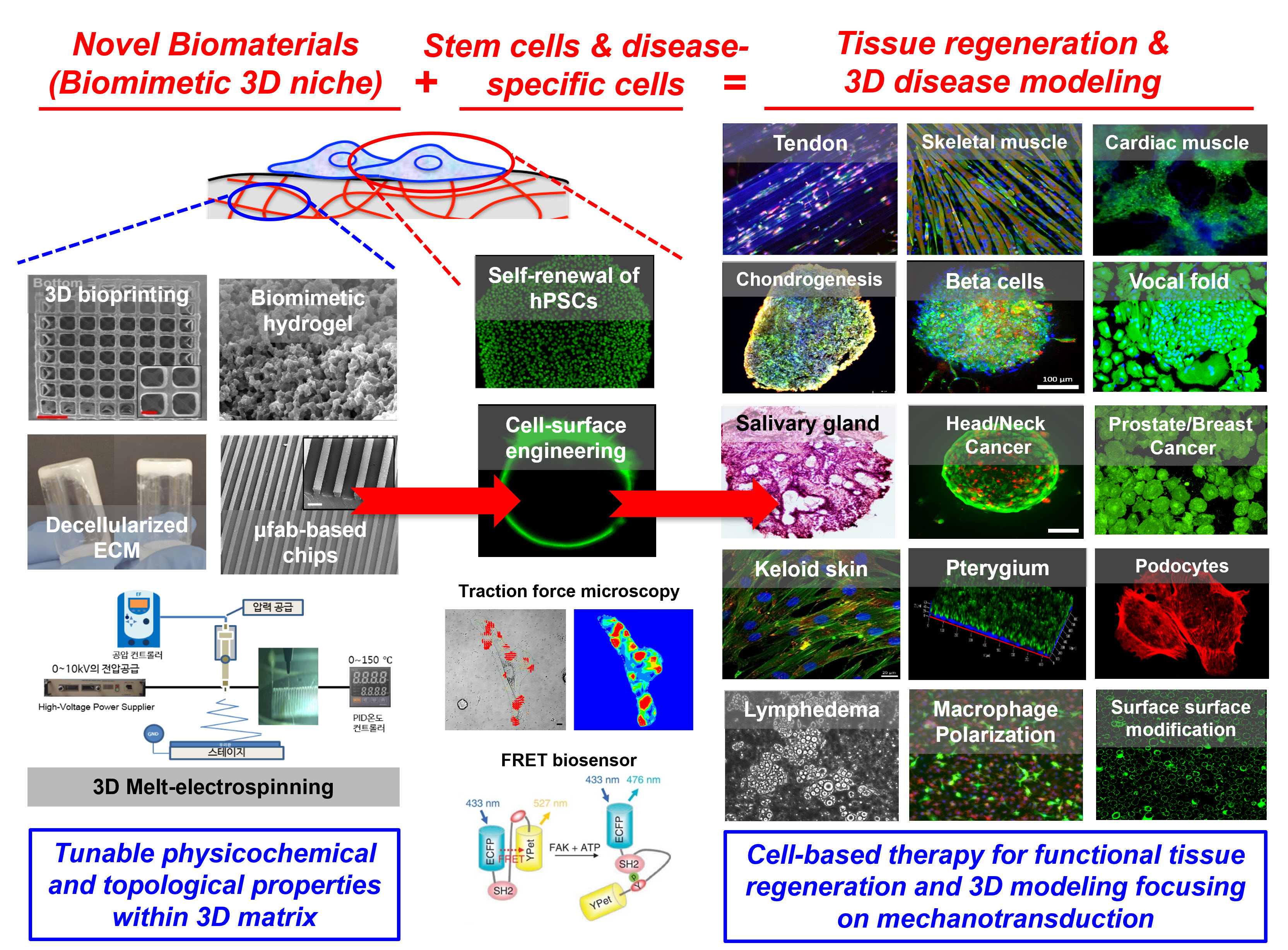
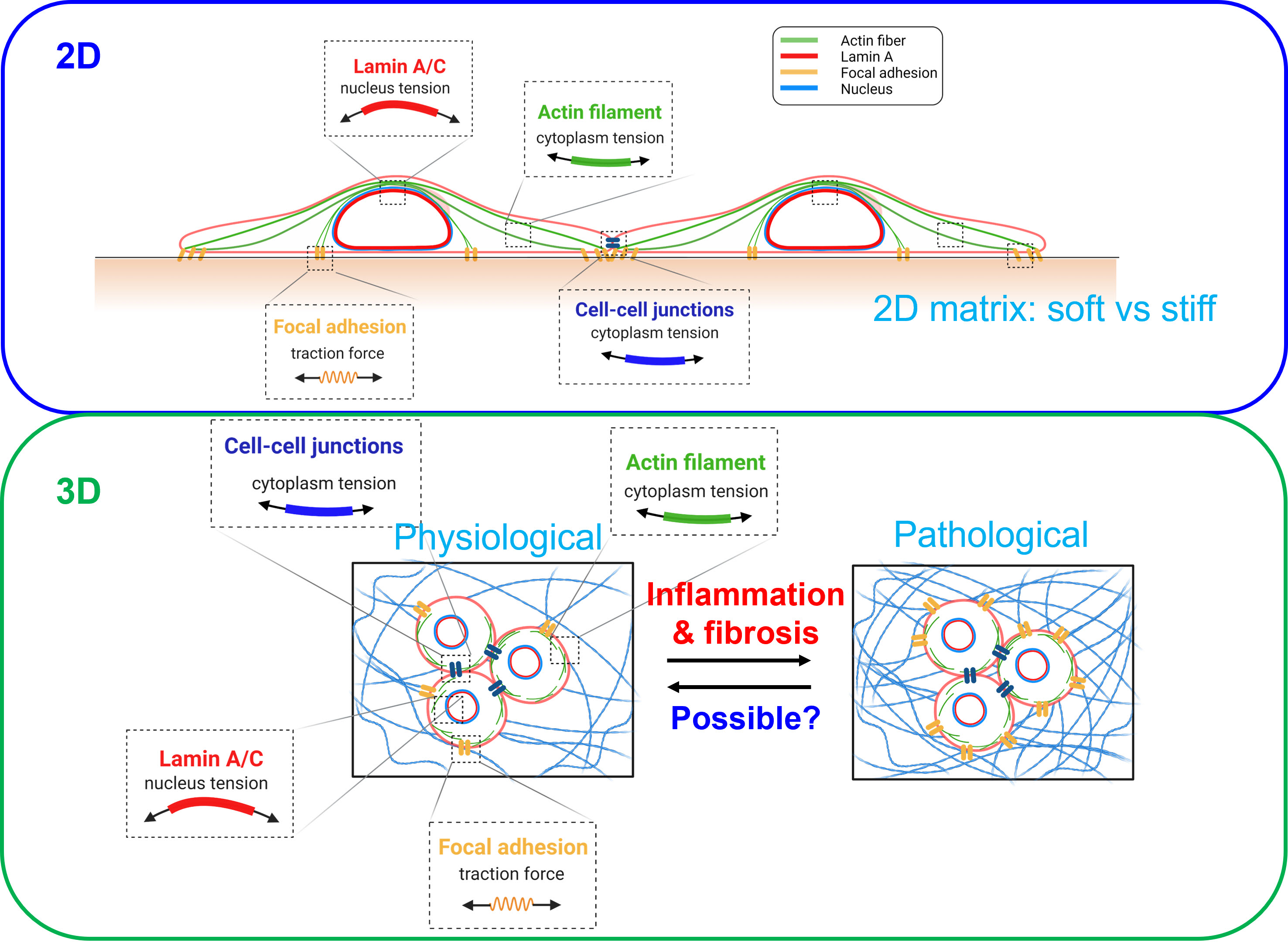
Developing the next generation of regenerative medicine-based therapies requires a critical understanding encompassing biology, materials science, physiology, medicine, and engineering. Therefore, my research interest lies in:
Aim1: Development of novel stem cell-based therapeutics for tissue regeneration – We try to (1) develop an efficient strategy to direct lineage-specific in vitro commitment of patient-specific pluripotent stem cells (hPSCs) and mesenchymal stem cells (MSCs) into various musculoskeletal cells, including teno-/osteo-/chondro-/adipo-/myogenic progenitors, and insulin-secreting beta cells by integrating insoluble, matrix-based cues along with soluble cues, and (2) evaluate their tissue regeneration efficacy by biomimetic material-assisted in vivo transplantation and (3) understand cell-cell and cell-matrix interactions using traction force microscopy with FRET biosensors.
Aim2: Development and design of cutting-edge biomaterials for recapitulating stem cell niche and disease microenvironments, including degenerative diseases (pteygium, podocyte dysfunction, keloid skin disorder, and osteoarthritis) and various head & neck cancers, in terms of mechanotransduction – We try to (1) design and fabricate novel hydrogel-based 3D scaffolds with biomimetic and hierarchical structures for stem cell fate commitment, novel co-culture system, and tumor microenvironment (TME) using 3D printing, 3D melt-electrospinning/spraying, microfabrication techniques and (2) develop functional in vitro disease model platforms as an organ-on-a-chip model and (3) cell surface engineering to modulate cell-cell and cell-matrix interactions for various cellular functions and their subsequent contribution to in vivo tissue repair.
|
Principal Investigator
Yongsung Hwang, Ph.D. Dr. Yongsung Hwang is an associate professor in the Soonchunhyang Institute of Medi-bio Science (SIMS) at Soonchunhyang University. He received a Ph.D. degree in Materials Science and Engineering from UC San Diego and he did his postdoctoral training in the Department of Bioengineering at UC San Diego. Developing the next generation of regenerative medicine-based therapies requires a critical understanding encompassing biology, materials science, physiology, medicine, and engineering. Therefore, his research interest lies in understanding the roles of cell-matrix/cell-cell interactions in controlling the lineage-specific fate determination of human pluripotent and patient-derived mesenchymal stem cells into various functional cells, including myo-/teno-/osteo-/adipo-/chondrogenic progenitors and insulin-producing beta cells, through biomaterial-based physiochemical cues along with soluble cues. Beyond fundamental understandings of artificial ECM-based cues to stem cells, his team also focuses on developing multifunctional 3D biomimetic materials as a bioengineered niche by leveraging 3D bioprinting techniques for regenerative and tissue engineering applications. Finally, by strong collaboration with clinicians, his team aims to develop disease microenvironment (fibrosis and cancer) to investigate the roles of mechanotransduction in regulating various degenerative disease progression, such as pterygium, podocyte dysfunction, keloid skin fibrosis, osteoarthritis, head and neck cancers. [Publication List] [한빛사]
- Professor, Soonchunhyang Institute of Medi-bio Science, Soonchunhyang University, Korea, 2024.3 - current - Associate Professor, Soonchunhyang Institute of Medi-bio Science, Soonchunhyang University, Korea, 2019.3 - 2024.2 - Assistant Professor, Soonchunhyang Institute of Medi-bio Science, Soonchunhyang University, Korea, 2015.3 - 2019 .2 - Postdoctoral Researcher, Bioengineering, UC San Diego, USA, 2011 - 2014 - Ph.D., Materials Science and Engineering, UC San Diego, USA, 2011 - M.S., Materials Science and Engineering, UC San Diego, USA, 2007 - B.S., Materials Science and Engineering, Sungkyunkwan University, Korea, 2006 - Email: yshwang0428@sch.ac.kr Researcher Professor
Sung Sik Hur, Ph.D. Dr. Hur is a research professor in Soonchunhyang Institute of Medi-bio Science (SIMS) at Soonchunhyang University. He received a Ph.D. degree in Materials Science and Engineering from UC San Diego and he did his postdoctoral training in the Department of Bioengineering at UC San Diego. His current research interest is to understand the roles of cell-matrix/cell-cell interactions on controlling the lineage-specific fate determination of human pluripotent stem cells into functional musculoskeletal progenitors and cancer progression and metastasis using Traction Force Microscopy (TFM). [Publication List] - Research Professor, Soonchunhyang Institute of Medi-bio Science, Soonchunhyang University, Korea, 2019 - current - Assistant Project Scientist, Bioengineering, UC San Diego, USA, 2013 - 2019 - Postdoctoral Researcher, Bioengineering, UC San Diego, USA, 2009 - 2013 - Postdoctoral Researcher, Bioengineering, UC Irvine, USA, 2007 - 2008 - Ph.D., Bioengineering, UC San Diego, USA, 2007 - M.S., Materials Science, Seoul National Univ., Korea, 1998 - B.S., Materials Science, Seoul National Univ., Korea, 1995 - Email: sstahur@gmail.com - Invited Brain Pool (BP) Fellow (Korea's Invitation Programs for Outstanding Overseas Researchers) - Recipient of Basic Science Research Program through the National Research Foundation of Korea(NRF) funded by the Ministry of Education (지역대학우수과학자) (2022-2025)
Joo Hyun Kim, Ph.D. Dr. Kim is a research assistant professor at Soonchunhyang Institute of Medi-bio Science (SIMS) at Soonchunhyang University and Soonchunhyang Cheonan Hospital. She received a Ph.D. degree from Gachon Advanced Institute for Health Science and Technology from Gachon University. - Research Assistant Professor, Soonchunhyang University, Korea, 2022 Mar - current - Postdoctoral Researcher, SIMS, Mar 2020 - Feb 2022 - Ph.D., Gachon Advanced Institute for Health Science and Technology, Korea, 2020 - M.S., School of Dentistry, Kyungbook National Univ. , Korea, 2012 - B.S., Department of Chemical and Biological Engineering, Gachon Univ., Korea, 2009 - Email: noirsky@naver.com - Recipient of Basic Science Research Program through the National Research Foundation of Korea(NRF) funded by the Ministry of Education (이공분야학문후속세대양성사업, 박사후국내연수) (2021-2024) - 2023 The Organoid Society 2023 "우수연제상" 수상 (October 26, 2023) - 2024 한국조직공학재생의학회 (KTERMS) "우수연제상" 수상 (May 4, 2024) (News Link) - 2024 대사질환조직 항상성 연구센터 심포지엄 "우수구두발표상" 수상 (August 26, 2024) - 2024 ICHNO (2nd International Conference of the Korean Society for Head and Neck Oncology) "Best Poster Presentation" 수상
Min-Kyu Kim, Ph.D. Dr. Kim is a postdoctoral researcher at Soonchunhyang Institute of Medi-bio Science (SIMS) at Soonchunhyang University and Soonchunhyang Bucheon Hospital. He received a Ph.D. degree from Department of Biochemistry, Yonsei University, Korea. - Postdoctoral Researcher, SIMS, 2022 Sep - current - M.S./Ph.D., Yonsei University, Korea - B.S., Yonsei University, Korea - Email: gavyek@gmail.com - Recipient of Basic Science Research Program through the National Research Foundation of Korea(NRF) funded by the Ministry of Education (이공분야학문후속세대양성사업, 창의도전) (2023-2026)
Gyo Jeong Gu, Ph.D. Dr. Gu is a postdoctoral researcher at Soonchunhyang Institute of Medi-bio Science (SIMS) at Soonchunhyang University. She received a Ph.D. degree from Department of Microbiology and Immunology, School of Medicine, Seoul National University, Korea. - Postdoctoral Researcher, SIMS, 2024 November - current - Ph.D., Seoul National University, Korea - M.S., Soonchunhyang University, Korea - B.S., Soonchunhyang University, Korea - Email: jeong6842@snu.ac.kr Postdoctoral Researchers
Ji Hoon Jeong, Ph.D. - Postdoctoral Researcher, SIMS, 2024 Sep - current - Email: ksku2012@naver.com - Brief Biography: Jihoon received his B.S. degree in the Department of Medical Biotechnology at Soonchunhyang University in 2018 and joined Hwang Lab in 2018 Spring. His currently research work focuses on chondrogenesis and insulin-producing pancreatic beta cell differentiation of human embryonic stem cells through cell-matrix interaction by harnessing GF-immobilized matrix and cell surface modification. - Recipient of Asan Graduate Scholarship (Biomedical Science) from Asan Foundation (2022년도 의생명과학분야 국내 대학원 장학사업, 아산사회복지재단) (2022 Mar - current) (News Link) - 2022 대한내분비학회 춘계학술대회 및 학연산 심포지엄 "우수연제상" 수상 (April 9, 2022) (News Link) - 2022 대한당뇨병학회 춘계학술대회 "우수연제상" 수상 (May 14, 2022) (News Link) - Recipient of Basic Science Research Program through the National Research Foundation of Korea(NRF) funded by the Ministry of Education (학문후속세대지원사업, 박사과정생연구장려금) (2022-2024) (News Link) - BRIC NEWS (Link), 한빛사 등재 (Link) - 헬스조선 인터뷰 (Link) - BK21 해외연수지원 프로그램 (4주): Univ. of Western Australia (PI: Prof. Yu Suk Choi) - 2024 World Biomaterials Congress (WBC) "우수연제상" 수상 (April 9, 2024) - Recipient of Basic Science Research Program through the National Research Foundation of Korea(NRF) funded by the Ministry of Education (이공분야학문후속세대양성사업, 박사후국내연수) (2024-2026) (Link)
Chanhee Gil, Ph.D. Dr. Gil is a postdoctoral researcher at Soonchunhyang Institute of Medi-bio Science (SIMS) at Soonchunhyang University and Kangdong Sacred Heart Hospital. She received a Ph.D. degree from School of Medicine, Seoul National University, Korea. - Postdoctoral Researcher, SIMS, 2024 Sep - current - Ph.D., Seoul National University, Korea - M.S., Pusan National University, Korea - Email: heladoo81@gmail.com
Laurensia Danis Anggradita, Phj.D. - MS/Ph.D. student - Email: laurensiadanis@gmail.com - Brief Biography: Laurensia received her B.S. degree in the Department of Biology at Atma Jaya Catholic Univ. in 2019 and joined Hwang Lab in 2019 Spring. Her current Ph.D. research work focuses on understanding the molecular mechanism of keloid skin disorders and recapitulation of 3D keloid skin microenvironment using skin tissue-derived decellularized extracellular matrix as a 3D printable bioink. - Recipient of 1st Place Winner for 2021 Summer Undergrad-Grad Joint Internship Program funded by SCH Univ. (2021학년도 하계방학 학부생-대학원 연구실 인턴프로그램 대상 수상: Beyond Cell) - Best Oral Presentation Award (April 15, 2022, 2022 KSBB Spring Meeting and International Symposium) - BRIC NEWS (Link), 한빛사 등재 (Link) 순천향대학교 (Link) Graduate Students (Ph.D. course)
Juyeon Kim - MS/Ph.D. student - Email: ehowl1761@naver.com - Brief Biography: Juyeon received her B.S. degree in the Division of Biological Science at Wonkwang Univ. and joined Hwang Lab in 2021 Fall as a MS student and her current M.S. research work focuses on myogenesis of patient-derived stem cells. - Best Research Award (May 12, 2023, 2023 KSBB Spring Meeting and International Symposium) (News Link) - BK21 해외연수지원 프로그램 (4주): Univ. of Western Australia (PI: Prof. Yu Suk Choi) - Best Poster Presentation Award (May 2, 2025, 25th Korean Tissue Engineering and Regenerative Medicine, KTERMS)
Jothilin Subitsha - Ph.D. student - Email: jothilinsubitsha1998@gmail.com - Brief Biography: Jothilin received her B.S. degree at Manonmaniam Sundaranar University Thirunelveli, Tamilnadu, India in 2018 and her M.S. degree at Manonmaniam Sundaranar University Thirunelveli, Tamilnadu, India in 2020. She joined Hwang Lab in 2022 Spring.
Delgerzul Baatar, M.S. - Ph.D. student - Email: bdelgerzul@gmail.com - Brief Biography: Delgerzul received her BS degree in Biology at National University of Mongolia and her MS degree in the Department of Animal Life and Environmental Science at Hankyung National University in 2018 and joined Hwang Lab as a graduate student staring on September 1, 2024.
Wonjong Seon - MS/Ph.D. student - Email: swj7852@gmail.com - Brief Biography: Wonjong received his BS degree in the Department of Clinical Pathology at Kangwon National University on August 2024 and joined Hwang Lab as a M.S./Ph.D. combined student on August 2024
Swaminadhan Dandapani, M.S. - Ph.D. student - Email: dswaminadhan.0305@gmail.com - Brief Biography: Swaminadhan received his MS degree in Department of Molecular Medicine Biology at Saveetha University, India in 2024 and will join Hwang Lab as a graduate student staring on March 1, 2025
Ei Shwe Yi Phoo, M.D. - Ph.D. student - Email: esyphoo@gmail.com - Brief Biography: Ei Shwe received her MD degree at University of Medicine Magway, Myanmar, her BS degree from Soonchunhyang University, and will join Hwang Lab as a graduate student staring on March 1, 2025 Graduate Students (M.S. course)
Le Anh Nguyet (Selena) - MS student - Email: leanhnguyet_t62@hus.edu.vn - Brief Biography: Selena received her M.S. degree in Vietnam National University, Hanoi on July, 2021. She joined Hwang Lab in 2023 Spring as a MS student and her current M.S. research work focuses on pathobiology of lymphedema
Muskaan Gurung - MS student - Email: muskaang838@gmail.com - Brief Biography: Muskaan received her B.S. degree in North Bengal St.Xavier's College, Rajganj, West Bengal, India, and joined Hwang Lab in 2023 Winter as a MS student and her current M.S. research work focuses on understanding pterygium diseases pathophysiology. - Recipient of Global Korea Scholarship (GKS)
Taekyun Kim, B.S. - M.S. student - Email: ktk5959@naver.com - Brief Biography: Taekyun received his B.S. from Soonchunhyang University, and will join Hwang Lab as a graduate student staring on March 1, 2025. Research Scientists
Jiwon Son, M.S. - Research Scientist - Email: pearl3717@naver.com - Brief Biography: Jiwon received her MS degree in the Department of Dermatology at Korea University in 2020 and joined Hwang Lab on December 1, 2020. - Best Poster Presentation Award (June 18, 2021, 22nd KTERMS) Exchange Students (Current)
Joselyn Phoebe - Exchange undergraduate student (6-month internship) - Email: - Brief Biography: Joselyn is an undergraduate student at AJCU and joined Hwang Lab on March 1, 2025 as an exchange undergraduate student from Atma Jaya Catholic University (AJCU), Indonesia
Gizella Els Gerardine - Exchange undergraduate student (6-month internship) - Email: - Brief Biography: Joselyn is an undergraduate student at AJCU and joined Hwang Lab on March 1, 2025 as an exchange undergraduate student from Atma Jaya Catholic University (AJCU), Indonesia. Alumni (Ph.D. students)
Yunhye Kim, Ph.D,
- Previous Position: MS/Ph.D. combined student (Mar 2016 - Aug 2022) - Email: kyhye4@naver.com - Brief Biography: Yunhye received her B.S. degree in the Department of Medical Biotechnology at Soonchunhyang University in 2015 and joined Hwang Lab in 2016 Spring. Her current Ph.D. research work focuses on understanding the roles of LMNA in chondrocyte de-differentiation and its application. - Ph.D. thesis: Deciphering the role of cell-matrix interaction in regulating chondrocyte phenotypes using cell traction and intracellular force microscopy - Recipient of Basic Science Research Program through the National Research Foundation of Korea(NRF) funded by the Ministry of Education (학문후속세대지원사업, 박사과정생연구장려금) (2020-2022) - Best Poster Presentation Award (2018 Aug, Korean Society for Stem Cell Research) - Best Poster Presentation Award (2018 Feb, Korean Society for Stem Cell Research) - Current Position: Postdoctoral Researcher, Boston Children's Hospital and Harvard Medical School, USA
Ji Hoon Jeong, Ph.D. - Previous Position: Ph.D. student (Mar 2020 - Aug 2024) - Email: ksku2012@naver.com - Brief Biography: Jihoon received his B.S. degree in the Department of Medical Biotechnology at Soonchunhyang University in 2018 and joined Hwang Lab in 2018 Spring. His currently research work focuses on chondrogenesis and insulin-producing pancreatic beta cell differentiation of human embryonic stem cells through cell-matrix interaction by harnessing GF-immobilized matrix and cell surface modification. - Ph.D. thesis: Deciphering the role of engineered cell-matrix interfaces in modulating cell fate for treating metabolic diseases - Recipient of Asan Graduate Scholarship (Biomedical Science) from Asan Foundation (2022년도 의생명과학분야 국내 대학원 장학사업, 아산사회복지재단) (2022 Mar - current) (News Link) - 2022 대한내분비학회 춘계학술대회 및 학연산 심포지엄 "우수연제상" 수상 (April 9, 2022) (News Link) - 2022 대한당뇨병학회 춘계학술대회 "우수연제상" 수상 (May 14, 2022) (News Link) - Recipient of Basic Science Research Program through the National Research Foundation of Korea(NRF) funded by the Ministry of Education (학문후속세대지원사업, 박사과정생연구장려금) (2022-2024) (News Link) - BRIC NEWS (Link), 한빛사 등재 (Link) - 헬스조선 인터뷰 (Link) - BK21 해외연수지원 프로그램 (4주): Univ. of Western Australia (PI: Prof. Yu Suk Choi) - 2024 World Biomaterials Congress (WBC) "우수연제상" 수상 (April 9, 2024) - Current Position: Postdoctoral Researcher, SIMS, Korea
Laurensia Danis Anggradita, Ph.D. - Previous Position: Ph.D. student (Mar 2019 - Feb 2025) - Email: laurensiadanis@gmail.com - Brief Biography: Laurensia received her B.S. degree in the Department of Biology at Atma Jaya Catholic Univ. in 2019 and joined Hwang Lab in 2019 Spring. Her current Ph.D. research work focuses on understanding the molecular mechanism of keloid skin disorders and recapitulation of 3D keloid skin microenvironment using skin tissue-derived decellularized extracellular matrix as a 3D printable bioink. - Recipient of 1st Place Winner for 2021 Summer Undergrad-Grad Joint Internship Program funded by SCH Univ. (2021학년도 하계방학 학부생-대학원 연구실 인턴프로그램 대상 수상: Beyond Cell) - Best Oral Presentation Award (April 15, 2022, 2022 KSBB Spring Meeting and International Symposium) - BRIC NEWS (Link), 한빛사 등재 (Link) 순천향대학교 (Link) Alumni (M.S. students)
Mona Fendereski, M.S.
- Previous position: MS student (Mar 2015 - Feb 2017) - Email: mona.fendereski@gmail.com - Brief Biography: Mona received her B.S. degree in the Department of Genetics and Molecular Biology at Isfahan University in 2012 and joined Hwang Lab in 2015. - M.S. thesis: Understanding roles of biomimetic matrix-based cues on regulation of myogenic differentiation - Graduation date: 2017 February - Current Position: Assistant Director, ScienCell Research Laboratories, Carlsbad, CA, USA
Ji Hoon Jeong, M.S. - Previous position: MS student (Mar 2018 - Feb 2020) - Email: ksku2012@naver.com - Brief Biography: Jihoon received his B.S. degree in the Department of Medical Biotechnology at Soonchunhyang University in 2018 and joined Hwang Lab in 2018 Spring. - Current Position: Ph.D. student at Soonchunhyang Institute of Medi-bio Science (SIMS)
Kyungmu Noh, M.S. - Previous position: MS student (Mar 2020 - Feb 2022) - Email: shrudan1@naver.com - Brief Biography: Kyungmu received his B.S. degree in the Department of Medical Biotechnology at Soonchunhyang University in 2020 March and joined Hwang Lab in 2019 Fall as an undergraduate volunteer researcher. His current M.S. research work focuses on the development of functional conjunctiva tissues using the patient’s conjunctiva-derived epithelial cells and fibroblasts, and understanding the molecular mechanism of pterygium based on 3D modeling. - Awarded the Best Oral Presentation of Student Oral Competition (SOC) at 2021 Fall Annual Conference of the Korean Society for Biomaterials - M.S. Thesis: Recapitulating pterygium microenvironment to elucidate the role of disease-specific mechanosensitivity in cell migration behaviors - Current position: Ph.D. student at Dongkook Univ.
Odelia Levana, M.S. - Previous Position: Exchange (Aug 2019 - Feb 2020) and MS student (Aug 2020 - Aug 2022) - Email: odelialevana@gmail.com - Brief Biography: Odelia received her B.S. degree in the Department of Biology at Atma Jaya Catholic Univ. and joined Hwang Lab in 2019 Fall through the exchange student program. Now she joined Hwang Lab in 2020 Fall as MS student and her current M.S. research work focuses on understanding the roles of LMNA in mesodermal lineage commitment of embryonic stem cells and their subsequent contribution to the chondrogenesis of stem cells. - Current Position: Prodia Clinical Laboratory (Diagnostic Laboratory Operator Scientist)
Lan Thi Phuong Nguyen, M.D., M.S. - Previous position: MS student (Mar 2022 - Aug 2024) - Email: lan phuong.nta@huemed-univ.edu.vn - Brief Biography: Lan received her M.D. degree in Can Tho University of Medicine and Pharmacy, Can Tho, Viet Namand joined Hwang Lab in 2022 Spring as a MS student and her M.S. research work focused on X-ray-induced xerostomia and salivary gland regeneration using salivary gland stem cells. - M.S. Thesis: Advancement of Novel Biomarkers and Salivary Gland-Derived Stem Cell-Based Therapeutics for Treating Radiation-Induced Xerostomia - Current position: Seeking for a Medical Intern position (Practicing her medical License)
Vanessa Violina - Previous position: MS exchange student (Aug 2023 - Aug 2024) - Email: vanessaviolinaa@gmail.com - Brief Biography: Vanessa is a first-year graduate student at AJCU and joined Hwang Lab on August 28, 2023 as an exchange graduate student from Atma Jaya Catholic University (AJCU), Indonesia. Now she finished her M.S. thesis with Prof. HWANG and will join HWANG lab as a research scientist. - M.S. thesis: Artemisinin-Induced Suppression of Migration and Proliferation of Metastatic Prostate Cancer Cells
Samjhana Thapa - Previous position: MS student (Sep 2021 - Aug 2025) - Email: samjhanathp@sch.ac.kr - Brief Biography: Samjhana received her B.S. degree in the Faculty of Human Biology, School of Science at Kathmandu University and joined Hwang Lab in 2021 Fall as a MS student and her M.S. research work focused on vocal fold fibrosis. Alumni (Postdoctoral fellows)
George Augustine, Ph.D. - Previous position: Postdoctoral Researcher (Mar 2021 - Dec 2021) - Email: sangeo.loyola003@gmail.com - Current position: Postdoctoral Researcher, Oregon State Univ., Oregon, USA
Mohd. Farhan, Ph.D. - Previous position: Postdoctoral Researcher (Mar 2022 - Jan 2023) - Ph.D., University of Macau, Taipa, Macau - M.S., Vellore Institute of Technology, Vellore, Tamil Nadu, India - B.S., Integral University, Lucknow, India - Email: mohd.farhan69@gmail.com - Current Position: Postdoctoral Researcher, Univ. of Texas, Houston, USA
Byung-Su Choi, Ph.D. - Previous position: Research Associate Professor (May 1, 2023 - Feb 29, 2024) - Ph.D., Hallym University, 2013 - M.S., Hallym University, 2007 - B.S., Hallym University, 2005 - Email: geneticmohanashan@gmail.com Alumni (Research staffs)
Hyun Bum Kim, Ph.D. - Previous position: Research Scientist (Sep 2017 - Aug 2019) - Email: tiggerhy@snu.ac.kr - Brief Biography: Hyun Bum received his B.S. degree in the Department of Biotechnology at Yonsei University in 2014 and integrated M.S./Ph.D. student in the Department of Chemical and Biological Engineering at Seoul National University. He joined Hwang Lab as research scientist as an alternative military service in 2017 Fall -2019 Fall and his research work focused on "Development of biomimetic shielding-mediated cell coating technology and its in vivo application as novel cell/drug delivery methods". - Current Position: Postdoctoral Researcher, Boston Children's Hospital and Harvard Medical School, USA
Jinhui Rhee, M.S.
- Previous position: Lab manager & Research Scientist (July 2020 - May 2022) - Email: qa6411@naver.com - Brief Biography: Jinhui received her MS degree in the Department of Biochemistry at Hoseo University in 2019 and joined Hwang Lab on July 1, 2020.
Jihye Choi, M.S. - Previous position: Research Scientist (November 2022 - Feb 2025) - Email: cwg0311@naver.com - Brief Biography: Jihye received her MS degree in the Department of Clinical Pathology at Dankoon University in 2022 and joined Hwang Lab on November 1, 2022 as a research scientist. Now, she joined HWANG lab as a graduate student staring on March 1, 2024. Alumni (B.S. students)
Soyoung Kim, B.S.
- Previous position: Undergraduate student (Dec 2016 - Feb 2018) - Email: cjstkthdud12@naver.com - Brief Biography: Soyoung Kim was an undergrad volunteer through SCH internship program during 2016 Winter - 2018 - B.S. thesis: Anti-bacterial properties of lignin-based compounds - Graduation date: 2018 February - Current Position: Research Scientist, Asan Medical Center, Republic of Korea
Yejin Park, B.S. - Previous position: Undergraduate student (Mar 2018 - Aug 2019) - Email: bbacke18@naver.com - Brief Biography: Yejin was graduated from the Department of Medical IT Engineering at Soonchunhyang University and she joined Hwang Lab in 2018 March. - B.S. thesis: Development of 3D-printable biomimetic material-based bioinks - Graduation date: 2019 August - Current Position: Industry
Doyoung Kim, B.S. - Previous position: Undergraduate student (Dec 2020 - Aug 2021) - Email: david9603@naver.com - Brief Biography: Doyoung is a senior student in the Department of Clinical Pathology at Soonchunhyang University and he joined Hwang Lab in 2020 Winter as a volunteer researcher. - Recipient of 1st Place Winner for 2021 Summer Undergrad-Grad Joint Internship Program funded by SCH Univ. (2021학년도 하계방학 학부생-대학원 연구실 인턴프로그램 대상 수상: Beyond Cell) - Current position: MS Student at Korea Univ
Jaehyun Jeong, B.S. - Previous position: Undergraduate student (June 2023 - Aug 2024) - Email: selly2514@naver.com - Brief Biography: Jaehyun is a junior student in the Department of Pharmaceutical Engineering at Soonchunhyang University. She initially joined Hwang lab on June 22, 2023 as an SIMS Summer Internship student and worked as undergraduate researcher since June 2023. - B.S. thesis: Effects of verteporfin on the differentiation of human tonsil-derived mesenchymal stem cells into beta cells - Graduation date: August 22, 2024 - Current Position: Internship at Korea Univ
So Eun Ahn - Previous position: Undergraduate student (Dec 2023 - Sep 2024) - Email: alicease0322@naver.com - Brief Biography: So Eun is a senior student in the Department of Pharmaceutical Engineering at Soonchunhyang University. She joined Hwang lab on Dec 18, 2023 as an SIMS Winter Internship student. - B.S. thesis: Effects of Artemisinin on breast cancer cell proliferation and migration - Graduation date: Feb 22, 2025
Seo Eun Yoon - Previous position: Undergraduate student (Dec 2022 - June 2024) - Email: cos0920@daum.net - Brief Biography: Seo Eun is a senior student in the Department of Pharmaceutical Engineering at Soonchunhyang University. She initially joined Hwang lab on Dec 22, 2022 as an SIMS Winter Internship student and is a currently undergraduate researcher since March 2023. - B.S. thesis: Roles of Piezo1 in keloid dermal fibroblast migration and fibrotic phenotypes -Graduation date: Feb 22, 2025 |
1. S. Hong, S. Oh, D. Choi, Y. Hwang#, and S. Kim#: "Self-organized Liver Microtissue on a Bio-functional Surface: the Role of Human Adipose-derived Stromal Cells in Hepatic Function", International Journal of Molecular Sciences, 2020, 21(13), 4605. (#denotes co-corresponding authors)
2. S. Hur, J. Jeong, J. Yoon, and Y. Hwang: "Traction force microscopy for understanding cellular mechanotransduction", BMB Reports, 2020, 53(2), 74-81.
3. J. Sah, N. Hao, Y. Kim, T. Eigler, E. Tzahor, S. Kim#, Y. Hwang#, and J. Yoon#: “MBP-FGF2-immobilized matrix maintains the self-renewal and myogenic differentiation potential of skeletal muscle stem cells”, International Journal of Stem Cells, 2019, 12, 360-366. (#denotes co-corresponding authors)
4. C. Ahn, Y. Kim, S. Park, Y. Hwang#, and J. Lee#: “Development of arginine-glycine-aspartate-immobilized 3D printed poly(propylene fumarate) scaffolds for cartilage tissue engineering” Journal of Biomaterials Science, Polymer Edition, 2018, 29(7-9), 917-931. (#denotes co-corresponding authors)
5. H. Kim, Y. Lee, Y. Kim, Y. Hwang#, and N. Hwang#: “Biomimetically reinforced polyvinyl alcohol-based hybrid scaffolds for cartilage tissue engineering” (#denotes co-corresponding authors) Polymers, 2017, 9(12), 655.
6. M. Nakasaki, Y. Hwang, Y. Xie, S. Kataria, R. Gund, E. Y. Hajam, R. Samuel, R. George, D. Danda, P. MJ, T. Nakamura, Z. Shen, S. Briggs, S. Varghese, and C. Jamora: “The matrix protein Fibulin-5 lies at the interface of tissue stiffness and inflammation in fibrosis” Nature Communications, 2015, 6:8574.
7. H. Kabra#, Y. Hwang#, M. Kar, and S. Varghese: “Biomimetic material-assisted delivery of stem cells enhances in vivo engraftment” ACS Biomaterials Science and Engineering, 2015, 1, 7-12. (# denotes joint first author)
8. Y-R. V. Shih, Y. Hwang, A. Phadke, H. Kang, N. Hwang, E. Caro, S. Nguyen, M. Siu, E. Theodorakis, N. Gianneschi, K. Vecchio, S. Chien, O. Lee, and S. Varghese: “Calcium phosphate-bearing matrices induce osteogenic differentiation of stem cells through adenosine signaling.” Proceedings of National Academy of Science, 2014, 111(3): 990-5.
9. C. Chang#, Y. Hwang#, D. Brafman, T. Hagan, C. Phung, and S. Varghese: “Engineering cell-material interfaces for long-term expansion of human pluripotent stem cells” Biomaterials, 2013, 34(4), 912-21. (# denotes joint first author)


